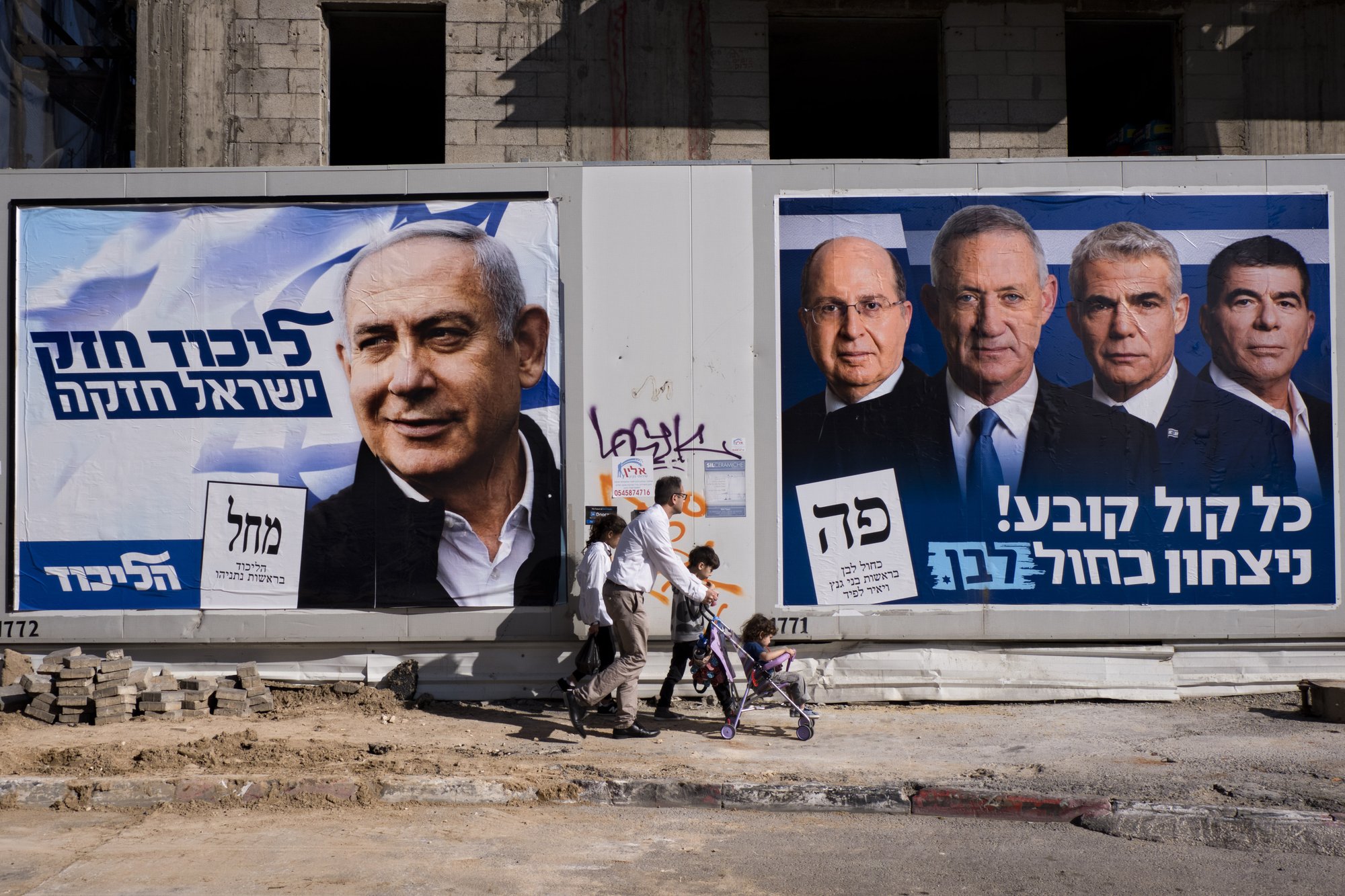
JERUSALEM (AP) — Israelis head to the polls on Tuesday to vote in the country’s 21st parliamentary elections. Over 6.3 million eligible voters will cast ballots in an election largely seen as a referendum on long-seated Prime Minister Benjamin Netanyahu.
Here is a closer look at what to expect:
CHASING HISTORY
Netanyahu is seeking his fourth consecutive term and fifth overall, including an earlier stint in the 1990s. With another victory, Netanyahu will secure a place in history later this year as the longest-serving prime minister, surpassing Israel’s founding father David Ben-Gurion. He faces tough opposition from his former army chief of staff, Benny Gantz, whose new Blue and White party seeks to replace Netanyahu’s long-dominant Likud
___
‘CORRUPTION’ VS. ‘INEXPERIENCE’
The three-month campaign has focused much more on personalities than issues. Netanyahu has tried to portray his opponent as weak and inexperienced. Gantz has tried to capitalize on a series of corruption investigations. The attorney general has recommended bribery and breach of trust charges against Netanyahu, who has denied any wrongdoing.
___
WIDE RANGE OF PARTIES
All 120 seats in the Knesset, Israel’s parliament, are up for grabs. A total of over 40 parties will compete, including large front-runners, ultra-Orthodox religious parties, Arab factions and fringe movements like the Pirate and Simply Love parties.
Only a handful are expected to garner the 3.25% of the vote necessary to break the electoral threshold and earn the minimum four seats in parliament. Ten parties made up the last Knesset.
___
HIGH TURNOUT
Israeli elections tend to have robust turnout. Election day is a national holiday, a measure aimed at encouraging participation. The last elections, in 2015, saw a 72% voter turnout, the highest percentage since 1999, but below the 77% average since Israel first went to the polls in 1949, a year after independence.
Arab voters, who make up 20 percent of the electorate, are threatening to boycott the election, accusing Netanyahu of inciting against them. That could have the unintended effect of helping the prime minister win a new term.
___
WINNER TAKE … MAYBE NOTHING
No Israeli party has ever won an outright majority, which forces the larger parties to form blocs with smaller allies.
After the election, Israel’s president will meet with party heads and select the party he believes is most capable of forming a coalition. That party, usually but not always the largest faction, then has four weeks to form a coalition. A new government will be given a four-year term, but disagreements between coalition parties often result in early elections.
Should neither a right-wing nor left-wing bloc be able to form a coalition, Israel could face the prospect of a second election in November.
___
Follow Ilan Ben Zion on Twitter: https://twitter.com/IlanBenZion
People walk by election campaign billboards showing Israeli Prime Minister and head of the Likud party Benjamin Netanyahu, left, alongside the Blue and White party leaders, from left to right, Moshe Yaalon, Benny Gantz, Yair Lapid and Gabi Ashkenazi, in Tel Aviv, Israel, Wednesday, April 3, 2019. Hebrew on billboards reads, left “Strong Likud strong Israel” on the right “Every vote matters, win Blue and White”. (AP Photo/Oded Balilty)
By ILAN BEN ZION




